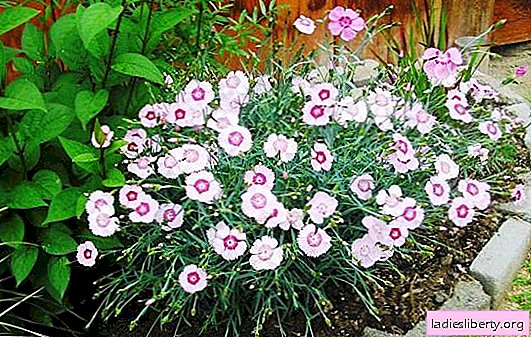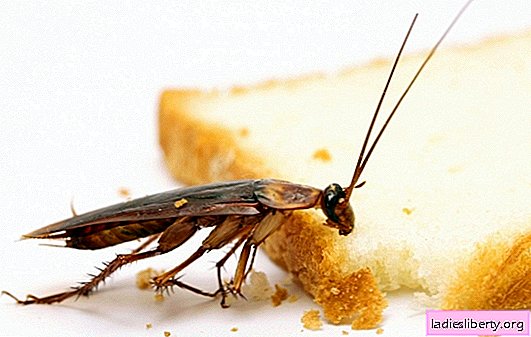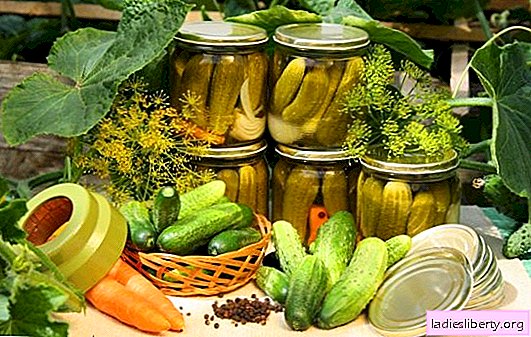
Garden clove is a perennial herbaceous flower of the clove family.
The stems of the plant are nodular, the leaves of some varieties have a blue tint. Breeders have bred more than 300 varieties of cloves, which are eye-catching in their beauty.
The rich color scheme of the plant includes all shades, with the exception of blue.
Hybrid plants have a two-tone color of the petals, strokes and interspersed with contrasting shades, simple and terry-shaped inflorescences.
Varieties and types of perennial cloves (photo)
Any variety of cloves looks beautiful on the flowerbed and does not require specific care.
1. Clove perennial pinnate - terry plant variety. Its thick, low bushes play with bright colors, giving the flowerbed an unusual look. Flowering of this variety lasts several months, which will allow throughout the summer to enjoy the aroma of cloves. A variety of colors and a compact form allows the plant to be used to create an alpine hill.

2. Perennial Dutch carnation (garden) distinguished by its continuous flowering, which begins in June and continues until the frosts. Obtained by crossing different types of carnations. In the southern regions of the country, flowering continues almost all year round.

3. Perennial clove Shabo - A variety with large flowers of various shades. Terry inflorescences are very diverse, the petals are stacked in fancy buds that have wavy or corrugated edges. The plant has a captivating aroma.

4. Turkish carnation - A variety of perennial cloves, a fairly unpretentious variety. Large flowers combine several colors - this is the main difference between Turkish cloves and other species.

Planting carnations in the garden
A place for cloves needs to be selected sunny, well-lit. Low cold areas with stagnant water are not suitable for growing perennial cloves. The plant does not tolerate planting in shady and humid places. This causes various diseases that lead to the death of the plant.
The soil for the plant needs neutral or sandy loam. To add looseness to the soil add peat or river sand.
Some types of cloves give seeds from which you can get good plants. To grow perennial cloves in open ground, they are sown in spring when the air temperature reaches a constant mark of +15 degrees. Land for sowing should be well prepared: it is dug up and fertilized. The seed placement depth is 1 cm. Plantings should be covered with a film until the first seedlings appear, which will be at a temperature of + 18 degrees. When shoots appear, the covering material is removed, the plants are thinned out as soon as two true leaves are formed.
Perennial cloves can also be grown in seedlings. For this, seeds are sown in prepared containers at the end of March. On cloudy days, the necessary level of illumination of seedlings can be achieved using phytolamps. Pickling seedlings is carried out in April, when the plants get stronger. Pinching the bush is done in the presence of 5 leaves. Seedlings are planted in a permanent place at the end of May, when the threat of frost passes. The distance between plants in the garden should be at least 30 cm.
Care for perennial cloves in the garden
A beautiful plant does not require special care, a lot of effort. All the plant needs is watering, weed removal, top dressing, and cleaning.
Watering and weeding cloves
When growing cloves for many years, you need to maintain the necessary level of soil moisture. You need to water the plant often, but little by little, which will help to avoid basal rot.
Weeding cloves and loosening the soil is combined with the removal of weeds, which clog the plant and prevent it from developing. Only young plants need regular weeding; adult specimens are able to restrain weed growth by covering the soil with a dense carpet.
Plant nutrition
Any ornamental plant needs top dressing, and perennial cloves are no exception. Throughout the entire period of growth and development, the plant must be fertilized.
• The first fertilizing occurs in the spring, when the active growth of shoots begins. During this period, nitrogen-containing fertilizers are used.
• The second time you need to fertilize at the time of laying the buds. As a rule, they switch to phosphorus-potash fertilizers.
• The third time, carnation is fed after flowering.
Perennial cloves respond well to the introduction of mineral complexes for flowering plants. With dosages of nitrogen fertilizers, you need to be very careful, since oversaturation with them leads to various diseases.
Important! Using manure as fertilizer for perennial cloves is highly undesirable.
Sanitary cleaning of perennial cloves
After blooming cloves, you need to cut dry heads that spoil the appearance of the plant. During this period, clove shoots need to be shortened, which will benefit the flower. For caring, carnation will give another flowering, which will come closer to autumn.
Experienced gardeners shelter perennial cloves in the cold season, especially if a snowless winter is expected.
How to propagate perennial cloves yourself (photo)
Almost all varieties of cloves can be propagated in several ways:
• cuttings;
• dividing the bush;
• seeds.
Carnation cuttings
The best time for the procedure is the beginning of summer. The cuttings are cut from a healthy plant. The length of the handle should be at least 10 cm. The prepared handle is treated with drugs that accelerate root growth and placed in nutrient soil. Plantings are covered with a film until new leaves appear. Young cuttings quickly take root and turn into good strong bushes.

Bush division
Perennial cloves breed well by dividing the bush. From an adult plant, you can cut the necessary piece with the roots. Such bushes grow well in a new place and bloom the very next year.
Seed propagation
With some varieties of cloves, you can collect your seeds, which are used for sowing and growing seedlings. Collect dry boxes in the fall, when the seeds are fully ripe.
Important! Hybrid varieties of cloves do not always give a good result, so they are preferable to propagate in other ways. With seed propagation, the new plant does not repeat all maternal qualities.
Difficulties in growing perennial cloves
Inexperienced gardeners often have to deal with some difficulties when planting perennial cloves. This is a defeat of the plant by diseases and pests.
The most dangerous pests of cloves are: bear, nematode, thrips. Fight against the invasion of parasites with the help of chemicals.
Of fungal diseases, cloves are most often affected by fusarium, rust and mottling. Prevention against fungal diseases is proper care.
Advice! Planting perennial cloves away from tulips. These plants are affected by the same diseases, but they have different methods of control. Those drugs that treat tulips well cannot be used to treat cloves.











